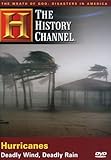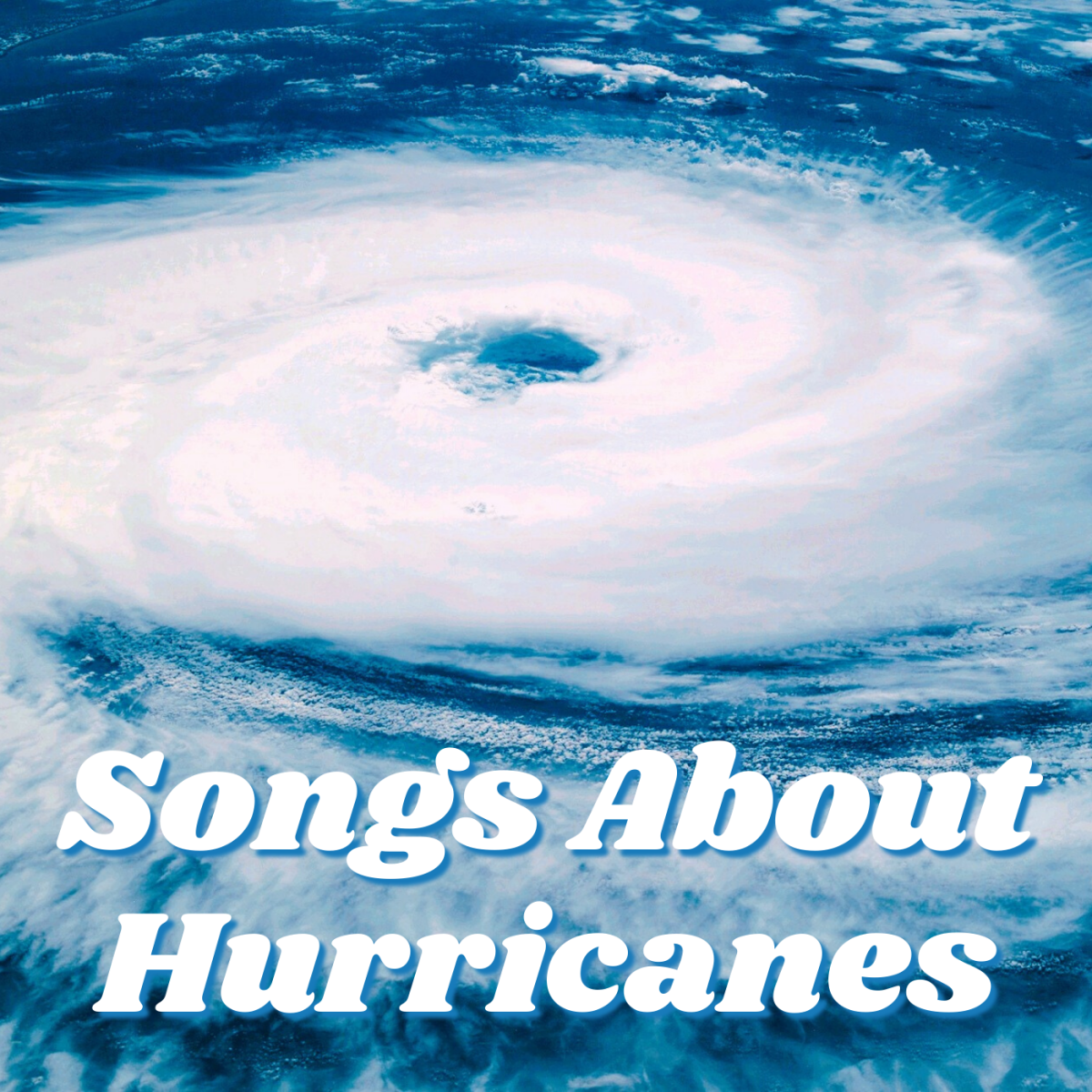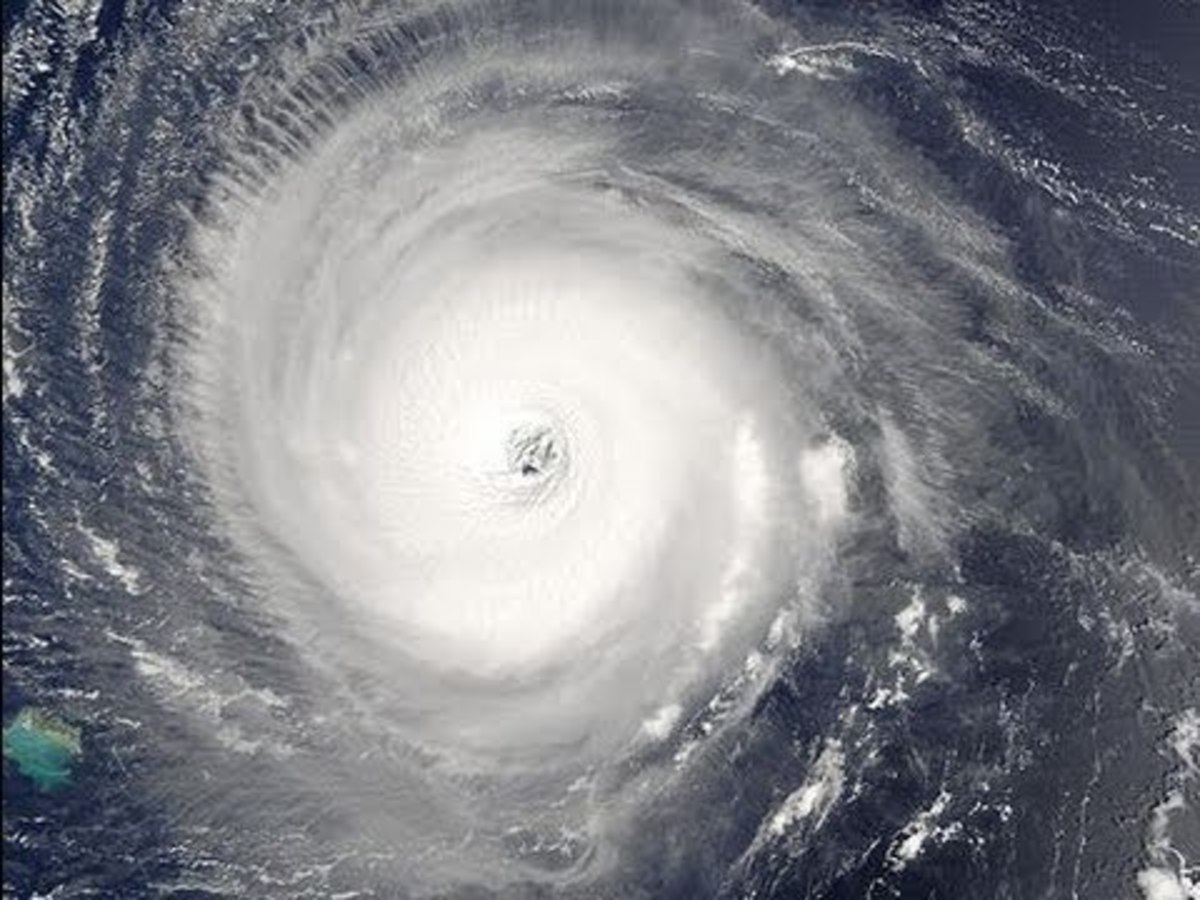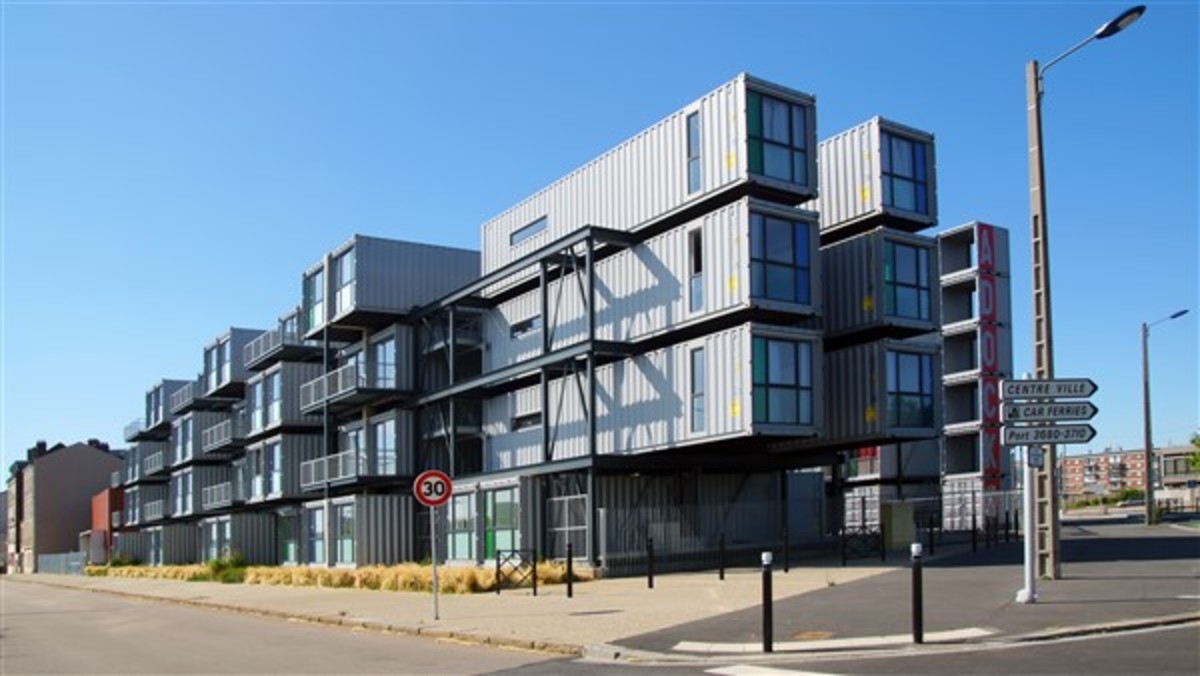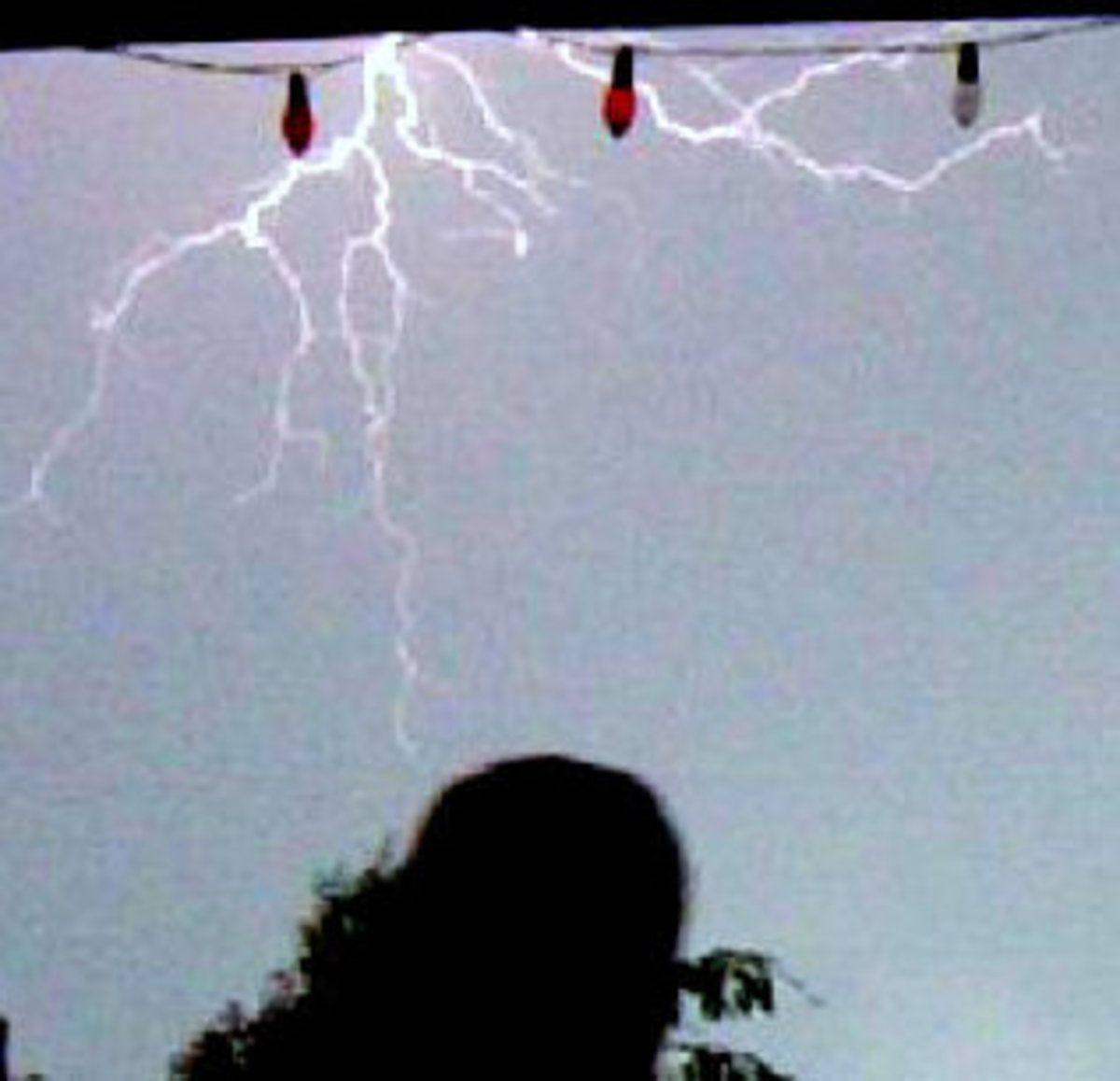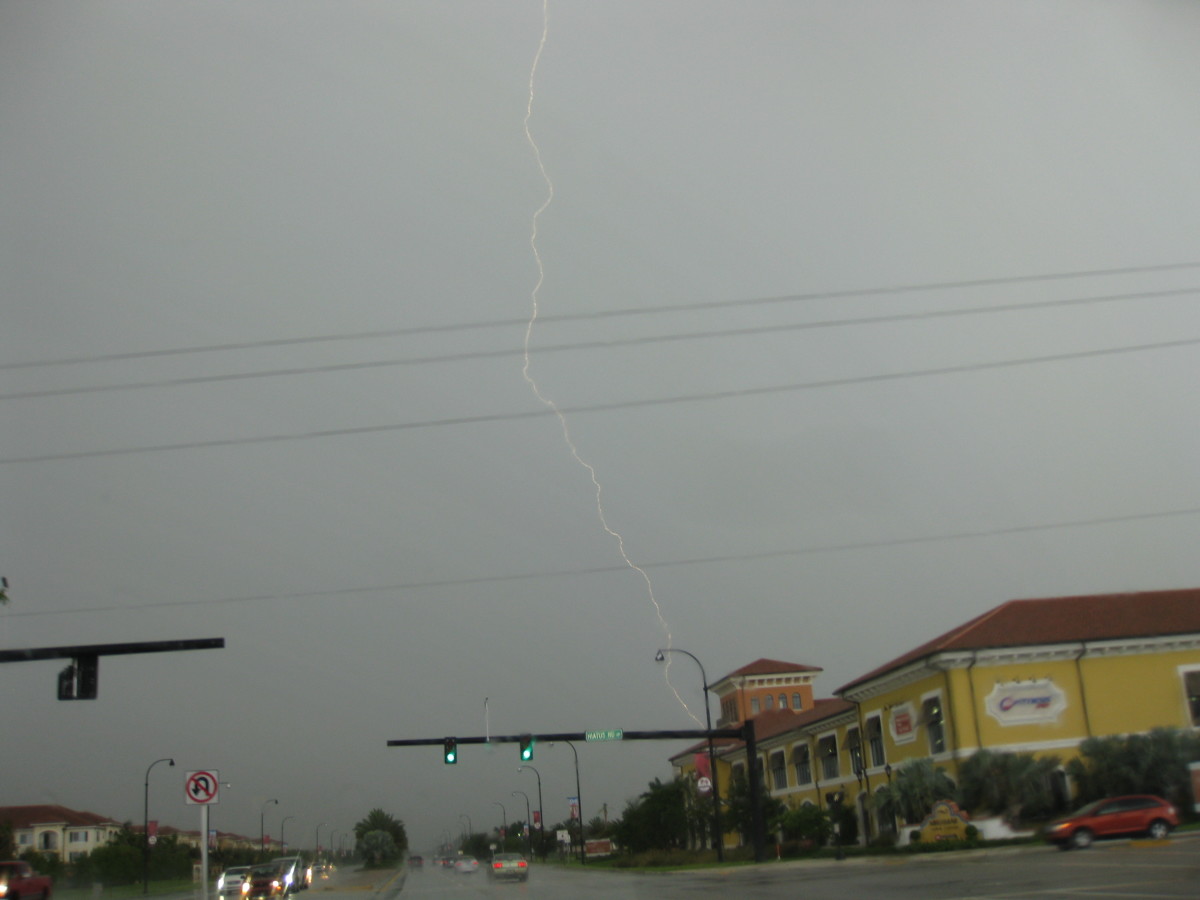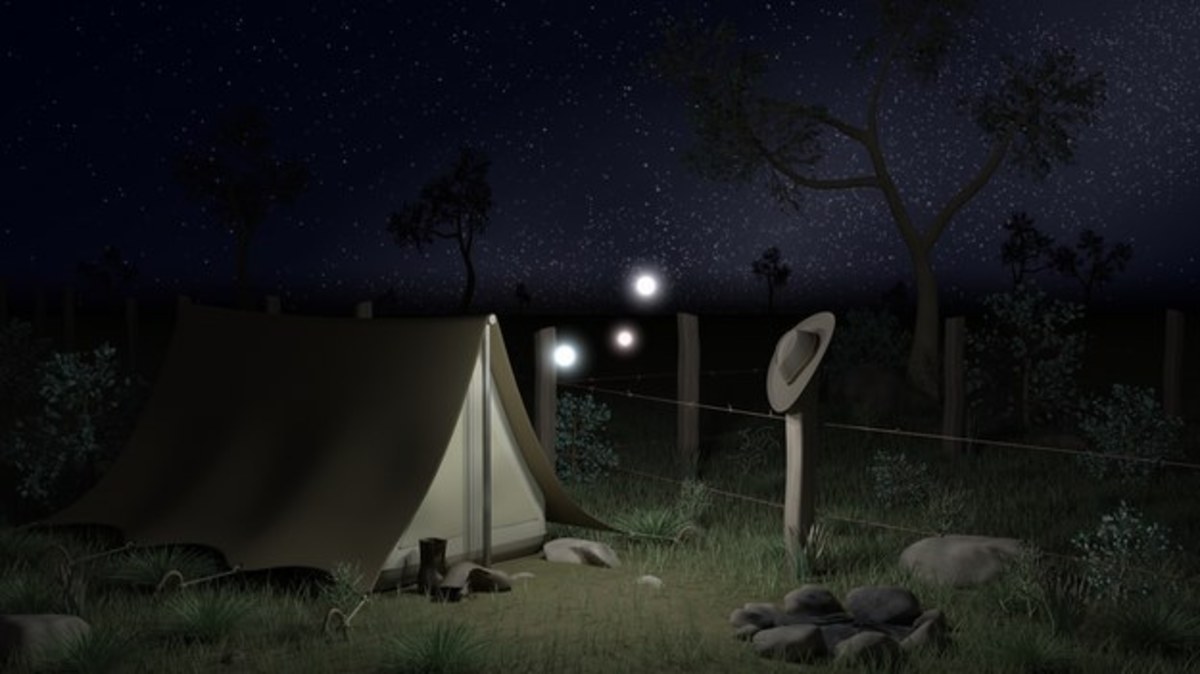Hazards of Hurricanes
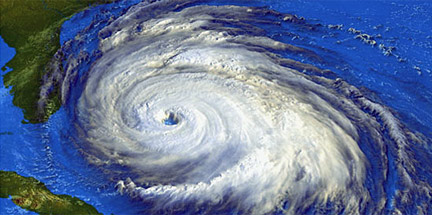
According to FEMA, hurricanes have become one of the most damaging and deadly natural disaster the United States faces each year. Hurricanes are intense tropical storms fueled by the warm waters of the ocean. The eastern trade winds and westerly winds steer these tropical storms capriciously. Combine that with the energy the storm itself produces and the damage inland can be astounding.
Damaging Winds
Hurricanes are measured by the strength of the wind and damage they cause. All hurricanes are measured according to the Saffir-Simpson Hurricane Wind Scale. Category 1 winds can reach from 74mph to 95mph. These high winds can damage business signs, rip roofs off, and even send debris crashing into windows. The main threat to humans and pets is flying debris. Some power lines may be damaged.
Category 2 winds can reach up to 110mph and can create the same damage as Category 1 but with more intensity. It can also collapse walls, snap and uproot trees, as well as cause massive power outages.
Category 3 winds range from 111mph to 130mph. These winds can collapse buildings and break windows. All electric and water service will typically be out for several days.
Category 4 winds can reach speeds of 155mph. The damage caused by these winds can be the same as the previous three categories, but with much more force. All power will be out for weeks and the area is considered uninhabitable.
Category 5 winds can exceed speeds of 155mph. The damage is beyond catastrophic. Most structures are destroyed, almost all the trees are uprooted, and power outages can last for months.
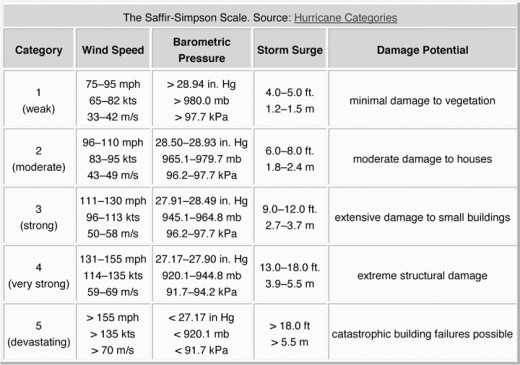
Storm Surge
Storm surges create the biggest danger people, animals, and property. Combining with the tides that fuel the hurricane water can surge onto land causing loss of life and destroying homes, businesses, and roads. Flooding can occur rapidly and if storm surges happen during regular high tide, the damage can be more devastating in a shorter amount of time.
Rainfall
Heavy rainfall can also contribute to the flooding of an area. Combined with storm surges, there isn't much that can be done to prevent flooding in certain areas.. Rain associated with hurricanes can unleash at least 10 inches of water in short amount of time. In most cases, flooding can exceed 15 inches. To try to estimate how much rainfall will occur, you can divide 100 by how many miles per hour (mph) the storm is moving. As an example, say the hurricane is moving at 10mph. 100 divided by 10 equals 10 inches of rain. The National Weather Service provides updated information during hurricane threats. Remember rainfall from hurricanes can have an impact on communities that are hundreds of miles from the coast.
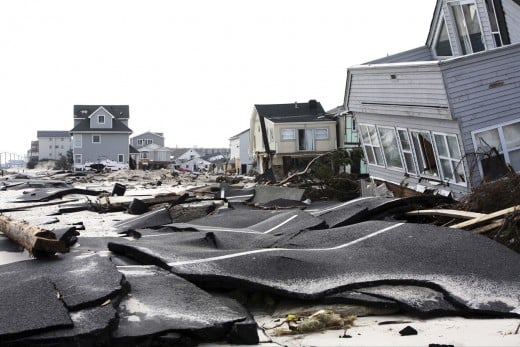
Tornadoes
Fifty percent of the time, hurricanes can spawn tornadoes especially after they have made landfall. If tornadoes develop they are typically in the front right quadrant of the storm. They are even more dangerous because these type of tornadoes are wrapped in rain and difficult to recognize visually before it is too late.
Aftermath
Hazards of hurricanes extend well after the storm has passed. Aside from contaminated water and debris, structural damage can cause problems as well. Some building may have to be torn down because the damage is too severe. For those buildings that are structurally sound, they may have to deal with issues such as mold and mildew. Flooding also brings with it bacteria, parasites, and a breading ground for insects such as mosquitoes. Hurricanes can also damage the coast line with erosion and debris; making it dangerous for residents and tourists alike.
Poll
Do you and your family have an emergency plan in place in the event of a hurricane?
The best course of action to protect you and your family is to be prepared ahead of time. Have an evacuation route and detour routes planned before the threat of a hurricane arrives. Be prepared to protect your home or business the best you can. Although evacuation is always advised some people choose to stay. They should be prepared by stocking up on fresh water, can goods, candles, and flashlights. Just remember to wash any can goods or containers before opening them. Also, be sure to have a radio and weather radio so that you can stay updated on what is going on in the community. Stocking up on batteries is also a good idea because the power may be out for days to months.
Choosing to stay informed when hurricanes are predicted is the best way to guard yourself from the hazards of the hurricanes. Remember to be smart by planning ways to keep you and your family safe. Material possessions can be replaced in time, but individual life can not.
© 2014 L. Sarhan


